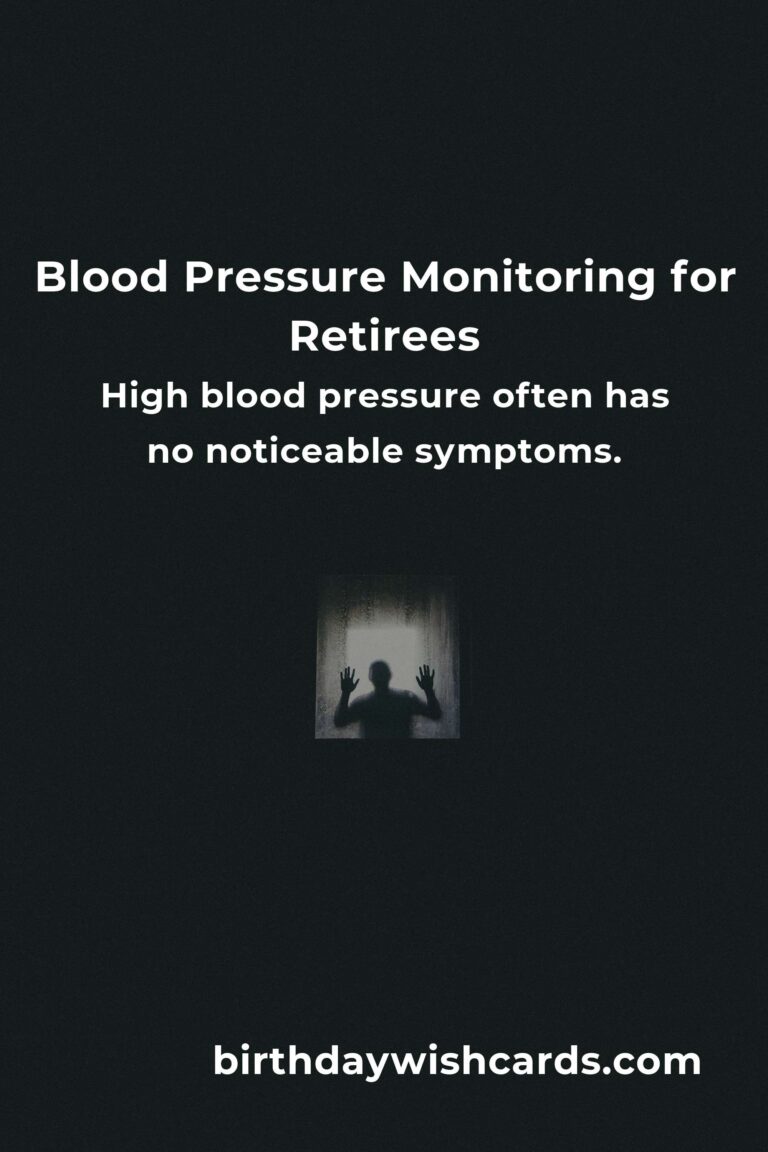
As we age, maintaining optimal health becomes a top priority. Blood pressure is one of the key indicators of our cardiovascular health, and it’s essential for retirees to understand how to manage it effectively. This guide provides insights into maintaining healthy blood pressure levels, recognizing potential issues, and incorporating lifestyle changes to support heart health.
What is Blood Pressure?
Blood pressure is the force of circulating blood against the walls of the arteries. It is measured in millimeters of mercury (mmHg) and recorded as two numbers: systolic pressure (the pressure when the heart beats) over diastolic pressure (the pressure when the heart rests between beats). For example, a blood pressure reading of 120/80 mmHg is considered normal.
Importance of Blood Pressure Management for Retirees
As we retire, our bodies undergo several changes. The risk of developing high blood pressure, also known as hypertension, increases with age. Hypertension is a significant risk factor for heart disease, stroke, and kidney problems. Managing blood pressure is crucial to reducing these risks and maintaining a high quality of life.
Recognizing High Blood Pressure
High blood pressure often has no noticeable symptoms, earning it the nickname ‘the silent killer.’ Regular monitoring is essential to detect any changes early. Symptoms of severe hypertension may include headaches, shortness of breath, or nosebleeds, but these are not specific and usually do not occur until blood pressure has reached a dangerously high level.
Factors Affecting Blood Pressure in Retirees
Several factors can influence blood pressure, including:
- Age: Blood pressure tends to rise as you age.
- Weight: Being overweight can increase the risk of hypertension.
- Diet: High salt intake can raise blood pressure.
- Physical Activity: Lack of exercise can contribute to weight gain and hypertension.
- Stress: Chronic stress may contribute to high blood pressure.
Lifestyle Changes to Manage Blood Pressure
Making lifestyle changes can significantly impact blood pressure. Here are some tips:
- Healthy Eating: Opt for a balanced diet rich in fruits, vegetables, whole grains, and lean proteins. Reduce salt and saturated fats.
- Regular Exercise: Aim for at least 150 minutes of moderate-intensity aerobic activity each week.
- Weight Management: Achieving and maintaining a healthy weight can help control blood pressure.
- Stress Management: Practice relaxation techniques such as meditation, yoga, or deep breathing exercises.
- Avoiding Tobacco and Limiting Alcohol: Smoking and excessive alcohol intake can increase blood pressure.
Medication and Regular Check-Ups
For some retirees, lifestyle changes alone may not be enough to manage blood pressure. Medications such as diuretics, ACE inhibitors, or beta-blockers might be necessary. Regular check-ups with a healthcare provider are crucial to monitor blood pressure levels and adjust medications as needed.
Conclusion
Managing blood pressure is a vital aspect of retirement health. By understanding the factors that influence blood pressure and taking proactive steps to maintain it within a healthy range, retirees can enjoy a healthier, more active lifestyle. Regular monitoring, lifestyle adjustments, and medical support are key components of effective blood pressure management.
Blood pressure is the force of circulating blood against the walls of the arteries.
The risk of developing high blood pressure increases with age.
High blood pressure often has no noticeable symptoms.
Several factors can influence blood pressure, including age, weight, diet, physical activity, and stress.
Making lifestyle changes can significantly impact blood pressure.
Regular check-ups with a healthcare provider are crucial to monitor blood pressure levels.
#BloodPressure #RetireesHealth #HeartHealth #WellnessTips #HealthyAging

